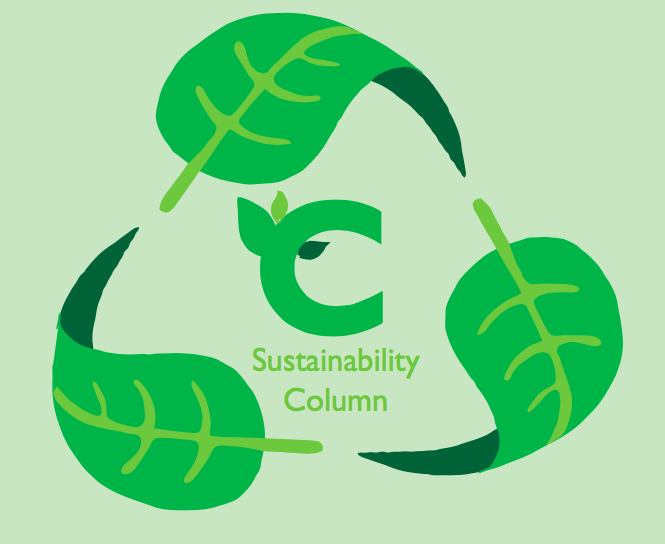Sustainability Column: My Sustainability Journey
For my final Maroon-News article, I wanted to write about my sustainability journey, both at home and at Colgate, in the hopes that it will inspire others to either follow a path like mine or to become more sustainable in general. I think that to most people, my lifestyle and habits seem almost radically sustainable, but I disagree. I think that if we are to stop climate change (and oh, by the way, we have about roughly 12 more years to do so before the damage becomes irreparable), then we have to be living more conscious lives.
I grew up in what I consider to be a pretty environmentally friendly household. We recycle pretty much everything, we compost, our heat consistently stays at 69 degrees, we have LED light bulbs and only use Energy Star rated appliances or other sustainable appliances. Because of this upbringing, I was already much more sustainably-minded than most of my peers. Coming to Colgate really shocked me at how far behind some people are in terms of general living habits.
It was also surprising to learn just how little most people care about sustainability. I think we are lured into a false sense of security about the repercussions of our actions because we cannot directly see the impacts of our plastic Dunkin’ cup complete with straw or how much CO2 went into shipping that dress all the way from Indonesia that we’ll wear once to a formal and then throw away. (Remember that you can donate them!) Realizing that others do not constantly think about the implications of their actions in the way I do inspires me to pursue the type of sustainability I focus on today.
I became an intern for the Colgate Office of Sustainability in order to have more of an impact on campus and the student body. But I realized that with the direction of sustainability I was going, I was depending too much on individuals to make the right choices and that my focus was too narrow.
I realized that there are two kinds of sustainability: the first is where individuals are actively more sustainable. This might mean turning off the lights when you leave the room, turning down the thermostat at night or when you leave their house, only buying second-hand clothing, eating less meat and so on. The second type of sustainability that I have observed is where sustainability is done for people. Installing low flow toilets or faucets conserves water without people making any conscious decisions, using recycled and local materials during the construction process for a building reduces its carbon footprint, installing motion sensors means we don’t have to rely on people to turn off the light when they leave the room or only offering recycled paper for printing all make big differences.
My time at Colgate has led me to believe that while inspiring people to be more sustainable is so incredibly important, the second type of sustainability is where I can have the largest impact. That is why, in my senior year, I became a LEED Green Associate which has taught me to have a detailed knowledge of what makes buildings sustainable and how to improve a building’s carbon footprint. I spent my senior year utilizing LEED principles that I learned and implementing them in every project and campaign I carried out. And after graduation, I have decided to work for a company that focuses on making buildings more sustainable by reducing energy waste and targeting inefficiencies in buildings to reduce carbon footprints.
Though this is where I have decided I can be the most useful and have the largest impact, I urge you to determine for yourself where you can have an impact. Climate change is important and happening now, and humanity needs people to start caring. It has definitely been hard to be at Colgate where so many people do not think twice about their individual impacts.
My roommate recently asked me how I cope with the unsustainable actions of those around me after she noticed me turning down the thermostat, unplugging kitchen appliances and turning off the lights after my other roommates. I did not have an answer for her then and I still don’t. It’s difficult to watch others ignore the basic ways to be sustainable, to watch them tell themselves that their individual contributions to climate change don’t matter. For me, the only thing I can keep doing is slowly teaching them how to live sustainably and why it is so essential that they are conscious of the repercussions of their actions. I hope anyone who reads this considers their journey, focuses on their individual agency and realizes that their actions do matter, especially if they work towards making big changes in the world. I know I will.
Contact Maggie Dunn at [email protected].





